Can Cats Have Down Syndrome? Watch Your Feline Friend


Marvyn knew that many disorders are common in cats and humans. So, when Marvyn’s little kitty was having tremors, he got confused. The recent social media frenzy about “Down Syndrome cats” further made him ask, “Can cats have Down syndrome?”
He consulted a vet, and an MRI found that the kitty had cerebellar hypoplasia. Her cerebellum is smaller than regular cats. Despite a long list of challenges, Lily has her accomplishments and Marvyn never fails to celebrate one.
The day Lily managed to climb an entire flight of stairs on her own, Marvyn was the proudest cat-dad in the world!
Many feline friends like her face symptoms similar to Down syndrome. However, here is your answer if “Can cats have Down syndrome?” is your question. Cats Cannot have Down syndrome as they only have 19 pairs of chromosomes.
So, is your cat behaving a little weird for a few days now? Does it have a flat nose bridge, or is there any abnormality that replicates the symptoms of Down syndrome? Visit a vet for proper diagnosis and care.
Can Cats Have Down Syndrome? No. Here’s Why!
Human beings who have an extra pair or replication of chromosome 21 have Down syndrome. Cats cannot have Down syndrome because they don’t have chromosome 21. A cat can have 38 or 19 pairs of chromosomes in total.
In the rarest condition, a cat can born with an extra pair of chromosomes. For example, the calico cats come with XXY chromosomes.
However, it will never be the replication of chromosome 21. In fact, barring Chimpanzees, there are no other animals with Down syndrome.
So, can cats have Down syndrome? It’s NO, and now you know why they can’t have it.
Can Cats Have Down Syndrome Replicating Symptoms?
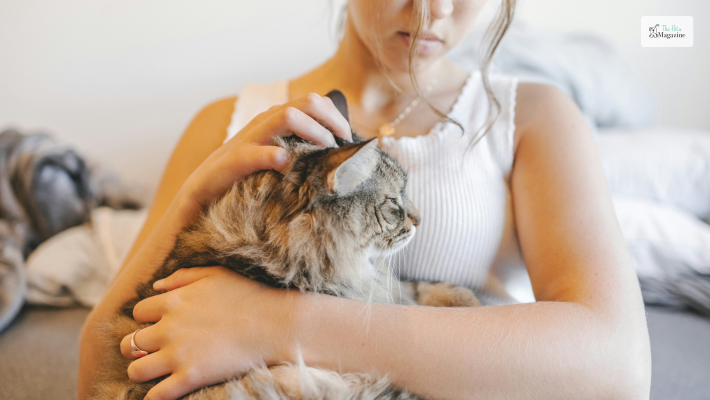
Yes, cats can have symptoms that replicate the symptoms of Down syndrome. In most cases, cerebellar hypoplasia is the reason behind your cat showing similar symptoms as Down Syndrome. If your cat has cerebellar hypoplasia, the severity of the symptom will depend on how small the cerebellum is.
Other reasons that promote Down syndrome-like symptoms in cats are stress, anxiety, exposure to chemical or environmental toxins, panleukopenia or feline parvovirus infection, and head trauma.
With the presence of any of these reasons, a cat can show the following symptoms.
- Cardiac issues
- Low muscle mass
- Visual imparity
- Trouble hearing
- A flat nose bridge
- Small or uniquely shaped ears
- Tremors
- Unsteady movements
- Difficulties in changing positions (from sitting to standing or vice versa)
Along with these physiological signs and difficulties in movement, cats with Down syndrome-like symptoms also show behavioral atypicalness. They do the same actions repeatedly and often avoid eye contact.
How To Take Care Of A Cat With Cerebellar Hypoplasia (CH)?
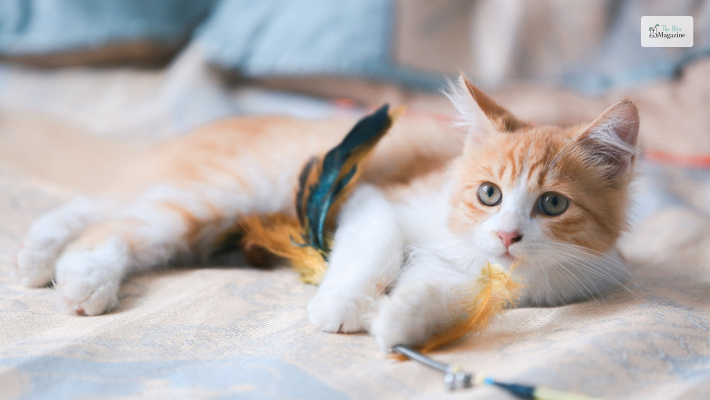
Cats have cerebellar hypoplasia if they get infected with the feline panleukopenia virus. A kitten can develop this condition if its mother was exposed to the infection before or during giving birth.
Nonetheless, a cat with CH usually survives a normal lifespan, and the condition is not painful. The cat also learns to deal with its limitations over time with a little extra care.
Let’s create a great life for our feline friends with CH. I have divided the guide into three sections: “Preventing CH in Cats,” “Creating a Safe Environment for Cats with CH,” and “Diagnosis and Treatment of Cats with CH.”
Preventing CH In Cats
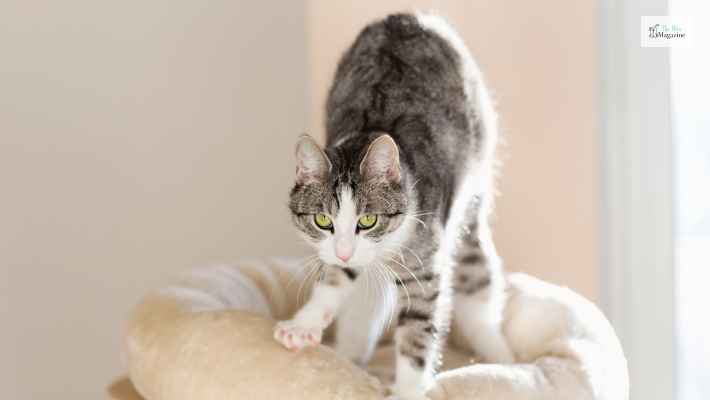
If your kitten is diagnosed with CH, you must neuter it before it gets five months old. It is essential to avoid pregnancies as the feline panleukopenia virus is transferred from a pregnant cat to her litter.
If your female cat is grown up or it’s part of a breeding program, you must get it vaccinated. A vaccinated female cat is less exposed to the risk of having feline panleukopenia virus infection.
The right age for vaccinating a cat for feline panleukopenia virus is 6-8 months. You must not vaccinate a kitten that is less than 4 months old, as there is a risk of developing cerebellar hypoplasia.
Creating A Safe Environment For Cats With CH
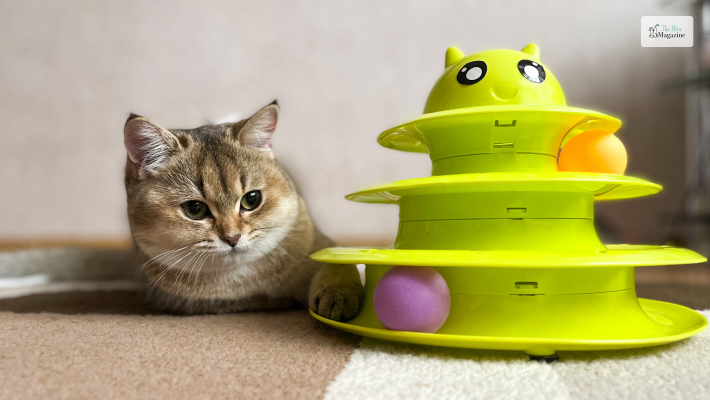
Cats with CH or wobbly cats face many physiological challenges, including vision impairment, cardiac issues, or difficulty in movements. Further, their social behaviors are atypical. So, they prefer to stay indoors, and they should not visit outdoors without your active presence.
As pet parents, we need to create a safe environment for these feline friends at home. This is a brief to-do list for you.
Making Feeding And Drinking Time Easier For Them
Wobbly cats face difficulties in lowering their necks. You can consider feeding them with your hands. However, if you want your furry one to navigate their own challenges, you can use wider feeding and water bowls for them placed on an elevated platform.
A specially designed feeding stable with an elevated feeding bowl can also be of great help.
Having Them Special Litter Boxes
You need to ensure easy access to litter boxes for these cats. If the litter box is not bigger in size and has an easy or flat opening, they can stumble at the entrance. Further, make sure that the litter box accommodates the cat properly, and they may not be able to hold themselves.
You can also add ramps to the litter boxes for ease of use.
Ensuring Safety As They Move Around
You cannot declaw a cat with CH. I am not in for declawing any cat, any way! Nonetheless, longer claws always ensure a better grip for these cats, reducing the number of falls they have.
In addition, you can lay a slip-resistant mat on the door, add ramps to your household furniture, and be careful about their access to staircases.
Encouraging Slow And Steady Interactions With Other Household Pets
You must encourage your cat with CH to interact with other household pets. However, introduce the other pets slowly to them and initially be watchful about their interactions.
Diagnosis And Treatment Of Cats With CH
A vet diagnoses cerebellar hypoplasia in cats from clinical signs. The vet notices the movements of the cats, especially how they move or hold their bodies while changing positions.
Further, they run some other tests or blood work to eliminate exposure to any other diseases.
An MRI test is the most effective way to determine cerebellar hypoplasia in cats. If it detects a cat to have a smaller cerebellum, the cat is diagnosed with CH.
There is no treatment or cure for cerebellar hypoplasia. These cats need a little extra care to sail through their days.
Final Words On Can Cats Have Down Syndrome
“Can cats have Down syndrome?” As someone who has been petting cats for the days I remember, I find this question a little disturbing. Don’t get me wrong! However, I think this question is another example of how social media and its “so-called trends” can mislead us.
Simple science and the physiology of cats say that CATS CAN’T HAVE DOWN SYNDROME. Feline Down syndrome is a myth! However, first-time pet parents or anyone who witnesses their cats show atypical behaviors or physiological traits can get confused.
If you observe any symptoms similar to Down Syndrome in your cat, don’t waste your time searching for “Can cats have Down syndrome?.” You must visit a vet ASAP. In most cases, the diagnosis is cerebellar hypoplasia, and with this condition, a cat can lead a healthy life. It also adapts to the physiological problems caused by cerebellar hypoplasia quickly.
Special measures like using wider food and water bowls for them and adding non-slip mats on the floor can help cats with cerebellar hypoplasia to lead a good life. This is all we want as pet parents or pet lovers. Don’t you agree?
Can Cats Have Down Syndrome? FAQs
Yes, cats, very much like human beings, suffer from mental disorders. Due to any injury, illness, or the loss of a partner, they can experience depression, stress, and anxiety.
Cats do not cry because of emotional reasons. Their eyes sometimes get watery and if the same happens when they are upset, you must think of it as nothing but coincidence.
However, they are emotional beings, and even grieve in certain situations.
An XXY cat is a male cat with an extra X chromosome. These cats are adored for their unique looks and coloring. Further, people in many cultures believe Calico cats to be the symbol of good fortune.
However, because of the presence of the XXY chromosome, calico cats are sterile, and they may face health issues like Klinefelter’s Syndrome.
Yes, cats can have depression, and the common symptoms of a depressed cat include hissing, lowering their bodies, or running away from a place.
However, there can be other behavioral changes specific to your cat. As the pet owner, you will know the symptoms well.
Cats can’t have Down syndrome and autism. Cats have only 19 pairs of chromosomes, and Down syndrome in human beings occurs with the presence of an extra pair of chromosome 21. So, as cats don’t have chromosome 21, they cannot have Down Syndrome.
Similarly, the neurodevelopment condition of autism does not happen in cats.
However, cats often have symptoms and behavioral patterns that are similar to Down syndrome and autism.
Wobbly walks, sudden tremors, and difficulty in movement are some symptoms in cats, replicating Down syndrome symptoms in human beings. Autism-like behaviors in cats are repetitive activities, making repetitive sounds, and aversion to touches.






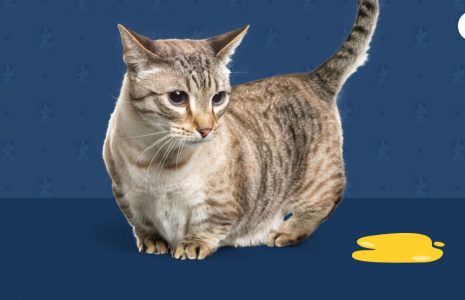
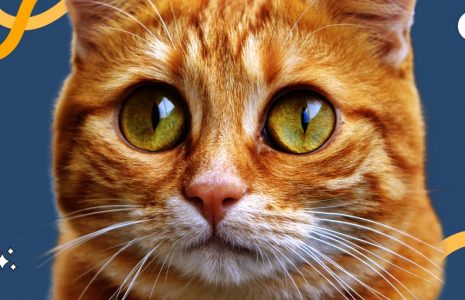

Leave A Comment